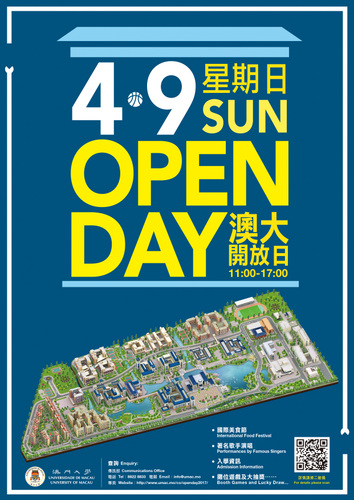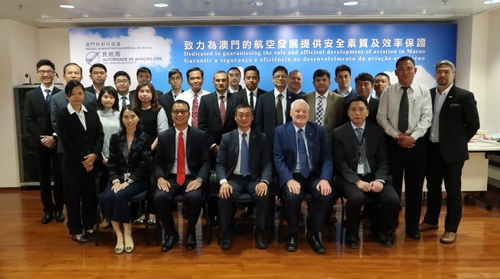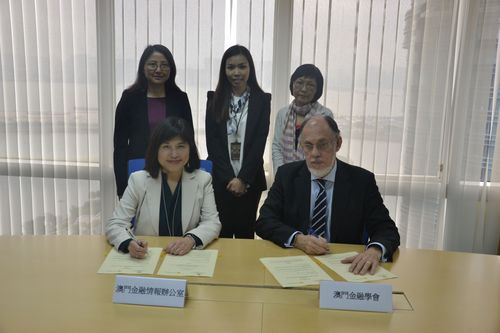Macao SAR Government Portal
News
April is a Contribution Month and FSS Reminds the Public to Pay Contributions on Time
The Social Security Fund (abbreviated to FSS in Macao) reminds members of the public that April is a contribution month and employers are required to pay contributions of the Obligatory System in this month for their local long-term employees for the first quarter of this year. If they have a non-resident worker, they must also pay the employment fee. Besides, beneficiaries of the Arbitrary System must also pay their contributions to the FSS in April. Starting this year, the contribution amount is 90 patacas per month, of which the contribution amount of the Obligatory System is 30 patacas for the employee and 60 patacas for the employer and the contribution amount of the Arbitrary System is 90 patacas.
…
CE to attend Legislative Assembly meeting on 21 April
The Chief Executive, Mr Chui Sai On, will attend a plenary session of the Legislative Assembly on 21 April (Friday) and answer legislators’ questions on Government policy and social issues.
…
UM to hold Open Day on 9 April
The University of Macau (UM) will hold an Open Day on Sunday 9 April. There will be various activities on the Open Day, including international students’ parade, admission consultation, booth games, performances by famous local singers who are graduates of UM, and International Food Festival. All Macao residents are welcome to attend the Open Day and spend a joyful Sunday on UM’s campus.
…
Consumer Council conducts price survey on selling prices of fresh pork and vegetables from Zhuhai and Macao
For the implementation of Section 2b), Article 10, Law 4/95/M of 12 June, Consumer Council on 28 March collects prices of fresh pork from wet markets and supermarkets for consumers’ reference. The mentioned data collected during 22 March to 28 March are used for comparing the average selling price of the same products from Zhuhai. The relevant data has been uploaded to the Council’s website for consumers’ reference.
…
AACM hosts aviation security exercise workshop
Working in collaboration with the International Civil Aviation Organization (ICAO), the Civil Aviation Authority of Macao SAR (AACM) hosts a four-day aviation security exercise workshop in Macao commencing today (28 March 2017) with the aim of educating participants with the knowledge of developing and planning an aviation security exercise and evaluating the effectiveness of the exercise, through theory courses and simulation. A total of 20 participants from 8 different countries and administrations in the Asia Pacific Region join the workshop.
…
Signing of Cooperation Agreement between Financial Intelligence Office and Macau Institute of Financial Services
The Cooperation Agreement on the professional training of the prevention and repression of Money Laundering and Counter-Terrorist Financing (AML/CFT) was signed between the Financial Intelligence Office (GIF) and the Macau Institute of Financial Services (IFS) on 24 March 2017. The Agreement aims to enhance the professional skills of the Finance and Insurance practitioners through training activities in the areas of AML/CFT, and to carry out educational and promotional programs to the public, in particular the secondary and tertiary students, in order to promote financial knowledge in educational arena. In light of this, the upcoming events for 2017 include seminars and professional trainings on AML/CFT. GIF will also support the “Financial Education Day” and “Global Money Week” organized by IFS, which aims to promote the knowledge of AML/CFT to the public and students.
…
Government continues its safe and effective investment principles
The Government would continue to adopt safe, effective and prudent strategies in managing its investments, said the Secretary for Economy and Finance, Mr Leong Vai Tac.
…
Government Information Bureau to launch a Facebook page
The Government Information Bureau is to launch a Facebook page tomorrow (28 March), in order to enhance its engagement with the public and to allow more convenient access to Government-issued information.
…
Consumer Council released latest ‘Supermarket price survey’ in Taipa and Coloane area
Consumer Council conducted its latest ‘Supermarket price survey’ in March on 27 March for the implementation of Section 2b), Article 10, Law 4/95/M of 12 June. Surveyed locations included 12 supermarkets in Taipa and Coloane area.
…
Consumer Council released latest ‘Supermarket price survey’ in Taipa and Coloane area
Consumer Council conducted its latest ‘Supermarket price survey’ in March on 27 March for the implementation of Section 2b), Article 10, Law 4/95/M of 12 June. Surveyed locations included 12 supermarkets in Taipa and Coloane area.
…






